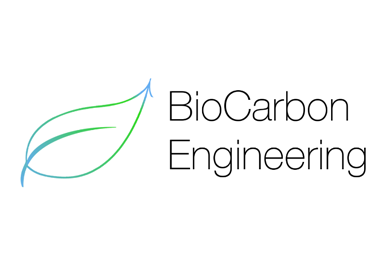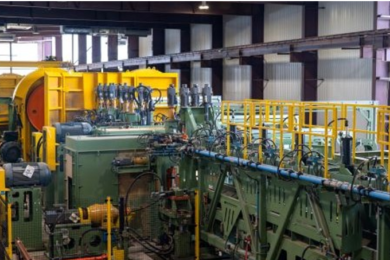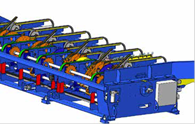BioCarbon Engineering (BCE), a UK company with the ambition to plant 500 billion trees by 2060 through the use of drones, has received a funding boost of US$2.5 million. The seed investment comes from SYSTEMIQ, a purpose-driven investment and advisory firm that aims to tackle economic system failures, and Parrot, the leading European drone group.
Every year, 15 billion trees are destroyed from natural and anthropogenic causes. Despite US$50 billion a year spent on replanting, there remains an annual net loss of 6 billion trees. Governments have made commitments to restore 350 million hectares of degraded land—equivalent to an area the size of India, which could accommodate around 300 billion trees—by 2030.
Meeting this target with existing methods alone is impossible. Currently, ecosystem restoration is mostly done by direct hand-planting, which is accurate but extremely time consuming. Aerial planting via helicopters is effective over large areas but results in much lower survival rates. BioCarbon Engineering’s drone-enabled technology fills the gap, planting seeds with both speed and accuracy across diverse landscapes.
The BCE system uses satellite and drone-collected data to determine the best location to plant each tree. The planting drones fire a biodegradable seedpod into the ground with pressurized air at each predetermined position at 120 seedpods per minute. The seedpods are filled with a germinated seed, nutrients, and other vital components. These penetrate the earth, and, activated by moisture, grow into healthy trees.
Two operators equipped with 10 drones can plant 400,000 trees per day. Just 400 teams could plant 10 billion trees each year, with the capability to scale to tens of billions of trees annually. The fully automated and highly scalable BCE solution plants 150 times faster and 4-10 times cheaper than current methods. This technology provides a new tool enabling global enterprises and governments to meet their restoration commitments. BioCarbon Engineering’s technology also goes beyond trees to plant other flora native to an ecosystem.
BCE is in full commercial operations with the first paid project in May 2017 in Australia. They have executed nine projects in the UK, Australia, Myanmar, New Zealand, South Africa, and Morocco. Work in 2018 will expand to projects in the UAE, Canada, USA, Brazil, Peru, and Spain. Customers include private landholders, companies, nongovernmental organisations, and governments.
As rates of deforestation and land degradation continue to rise, a 2018 report from the World Resources Institute and the Nature Conservancy identified ecosystem restoration as a growing area of economic opportunity for businesses, and attractive for investors as well.
“As an investor, we see BioCarbon Engineering as an important contributor to new transformative technologies we need to restore remote ecosystems at a cost and speed that are far superior to current solutions,” said Morten Rosse, Partner at SYSTEMIQ. “More important, BioCarbon Engineering’s technology provides valuable information that can help change the way we look at landscape management. SYSTEMIQ is proud to be part of its mission to restore ecosystems across the world.”
“BCE is the originator and global leader in drone-based ecosystem restoration,” said Lauren Fletcher, Founder & CEO of BioCarbon Engineering. “This partnership with SYSTEMIQ and Parrot, along with our core technology and talented team, will enable us to build a great global enterprise.”
“BCE is a valuable component of the commercial drone industry both in terms of mission and technologies,” said Gilles Labossière, Executive VP & COO, Parrot. “Supporting such project through responsible financial investments and using our leading position to promote drone for good is very important to Parrot. BCE has made great progress since our initial funding in 2016 and we look forward to seeing them restore our ecosystems and take landscape management to the next level.”
About BioCarbon Engineering
The idea of BioCarbon Engineering was formed in 2009 by Lauren Fletcher while he was at COP15 in Copenhagen. He is driven by a genuine concern about the state of our world: degrading climate, loss of natural environments, significant biodiversity losses, and a potential for global scale human suffering. He believes that emerging and exponential technologies, when appropriately applied, can solve global scale problems in ways that we have never been able to do before. He formally established the company in 2013 and formed the founding team in 2014.
About Parrot
Founded in 1994 by Henri Seydoux, Parrot is the leading European company in the fast-growing drone industry. The world’s second biggest company in the consumer drone market, Parrot designs drones known for their high performance and ease of use. Parrot also offers business solutions, including drone software and services mainly focusing on three major verticals: agriculture; 3D mapping, surveying and Inspection; and public safety. It currently employs 600 people worldwide and makes the majority of its sales outside of France. Headquartered in Paris, Parrot is listed on Euronext Paris (FR0004038263 – PARRO). For more information, visit www.parrot.co




